On April 13 2014, Shane O’Neill ran 26.2 miles around London town. It took him 3 hours, 39 minutes and 41 seconds. For anyone who has ever run a marathon, the various stages of mental and physical experience will be familiar; The High, The Forced Suppression, Doubt, Disillusion, Rock Bottom, Hope and Elation are a few of the typical emotions which combine with tremendous strain on a body in a character defining journey. In O’Neill’s case, it was a journey within a journey, one which began and continues with the beneficiaries of his efforts that spring Sunday – St Mary’s GAA, Faughanvale.
*****
Sundays meant one thing in the O’Neill household. Football. And football, in turn, meant only one thing. Faughanvale meant everything to Seán O’Neill, and still does. For the captain of the first junior county championship winning team of 1975 – the triumph which was the sign post for future generations to follow – it was also a way of life passed to his son:
“We went to football as a family and that was it,” says Shane. “He was the manager and I was there carrying water bottles for him, and kicking the balls back over the fence during the warm up,” are his earliest memories of his father and those early years at the club ground stood square to Lough Foyle and framed by the Inishowen coastline.
“I don’t recall much talk about my father’s team to be honest. A lot of them quit early after winning that championship. A new generation came in. You had the likes of John McGee, Eddie McDermott and Gary Quinn. They started again.”
It’s a theme which runs through the modern history of the club and you get an aching and acute sense of it when talking to Shane O’Neill. Having coached at under 16 and minor level at ‘A’ grade in the county, and being as competitive as the rest, O’Neill’s focus is now on the next batch, the under 8’s and 10’s. There’s a determination now that lasting structures will be put in place that will see the club fulfill somewhere near its full potential.

“Football has changed so much,” explains O’Neill.
“We’re mostly working on kicking, which seems to go against everything that is going on in the game. I can see other teams at that level doing the same and it’s great, because we have to get out of this cycle of short hand-passing. I’m a firm believer in the benefits of a kick-passing style of play.
And on the kids themselves; “They have no interest, or very little, in soccer.”
It’s a comment packed with meaning.
*****
They were a cavalier, freewheeling, rough-edged gang of youngsters. Think River Pheonix and the posse in the coming-of-age iconic classic, ‘Stand by Me’. A gather-up of talented lads from mostly GAA backgrounds in Glack, Faughanvale, Limavady and Magilligan – they entered the Coleraine and District youth soccer league, doing only what they loved to do – kick ball.
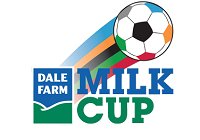
“If someone had asked me to play for top-of-the-hill Celtic, I’d have went. I just loved playing,” explains O’Neill wholeheartedly.
Their faces didn’t exactly fit in around the playing pitches of Cullybackey, Ballymoney, Killowen and Castlerock, but the innocence was there and there was a toughness to them. After less than half a season, O’Neill’s performances began to sing, mainly through a ball striking ability that would be the envy of most intercounty footballers of today. He was just fourteen.
When the league put together a select team to enter the Milk Cup, O’Neill was an automatic choice. The stage was prepared and the journey began.
“Our first game was against Man United at Anderson Park. Harry Gregg – the great Man United goalkeeper – was our manager. It was the game I got selected at to play for Notts Forest. I had been playing soccer for only ten months at that stage,” he laughs, reliving the moment. “I still sit back and laugh at that yet.”
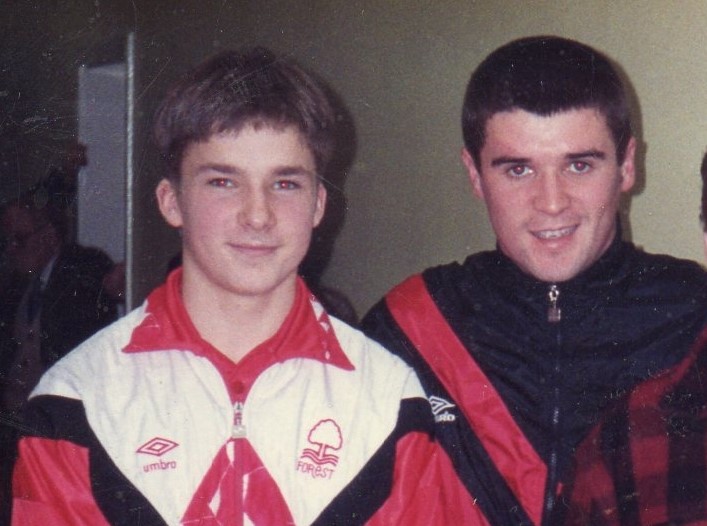
“I played in the Milk Cup and then we went to Scotland with the Magilligan gang. Two weeks after, I went over for a week’s trial to Forest and played a couple of games. I thought I was quite poor and hadn’t got on well at all.
“I didn’t expect to hear anything back but I got a phone call a week later saying I was going to get a letter.
“They asked me back for two weeks and I went. We played a few more games and at the end of that they offered me a five year contract.
“I was in complete shock. At fourteen years of age I hadn’t a bloody clue what to do.”
*****
Much has been written and made of the life of young sports stars seemingly coasting down the highway toward professionalism. It’s seldom a smooth road and O’Neill’s experience conforms to that of many others.
“Every Friday evening I would fly over and they’d pick me up and put me in digs. We’d play a game Saturday, train, and then play a game Sunday. I’d fly home again Sunday night. That went on until I was sixteen and left school.
“We went everywhere with Forest: AJAX, Marseille, PSV – really good standards of tournaments. Meanwhile, I was still playing for Faughanvale back at home when I got a chance. I shouldn’t have been as I wasn’t allowed! You’re not going to give up your club though.”
The soccer verses Gaelic football tussle was one which threatened to define O’Neill. It didn’t, and it hasn’t, but his experiences have stood to him.
“Being in England playing soccer was brilliant at the time. I wouldn’t change it but ever since I’ve heard a lot of stories of what goes on behind closed doors. It’s a lonely life for a young fella being away from home. Forest were very good to me, don’t get me wrong, but it’s a hard, hard slog,” he concludes.
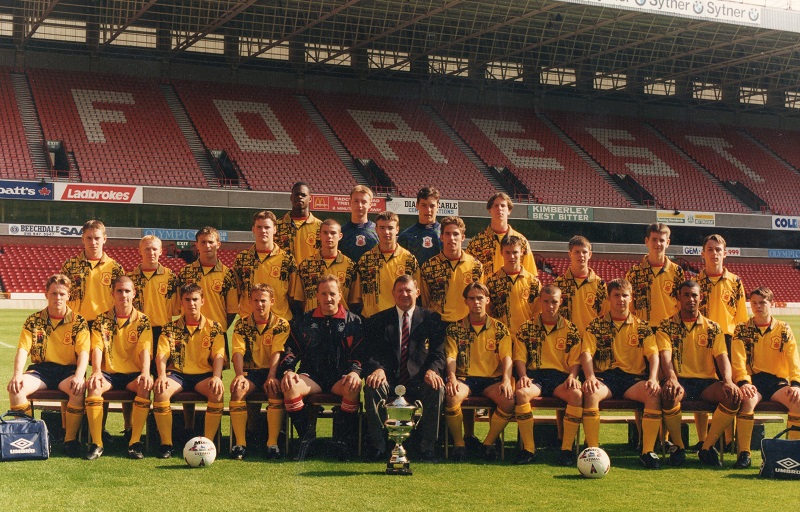
Offered a five-year contract, two as a school boy, one apprentice and two professional, O’Neill went with the flow where his natural talent and infectious enthusiasm for playing football – any football – took him.
Holland, France and England may have been on the tour map but Clones or Croke Park weren’t to be. Having got through to the final 30 after Derry minor trials in 1994 as a 15-year-old, the reality of commitments to the professional game were about to hit home.
Recalling the All-Ireland minor final of 1995 – the team of Enda Muldoon, Johnny McBride, Joe Cassidy and Adrian McGuckin, who had accounted for a Galway team featuring Padraig Joyce and Michael Donnellan in the semi-final, and lost the final narrowly to Westmeath following controversial goals allowed and disallowed (in Derry’s case) – Chris Brown spoke to the Gaelic Life’s Ronan Scott in November 2011 and contrasted his All-Ireland winning team of 2002 with the class of ’95:
“They [the 95 team] weren’t the finished article,” said Brown. “Muldoon was an ideal centre half forward, but there was a boy, O’Neill, who was playing with Nottingham Forest and he was the other midfielder that I needed. I actually went to see him, he was from Faughanvale, when he was home for the summer but he was contractually bound.”
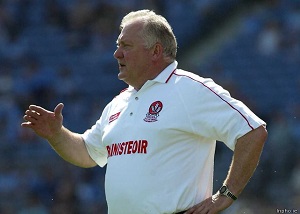
Shane takes up the story:
“Chris actually spoke to my da, who then spoke to Forest to ask them to release me from my contract for the summer. They point blank refused.
“I was shown that quote he had said and I have it framed in my house,” he says emotionally, before continuing, “I have only one regret in my life. It’s that I never got to play Derry minors. I have repeatedly told any of the lads we’ve coached at u16 and minor level this past few years that you only get one chance in your life to do this and you should take it if you’re able.
“I could be sitting with an All-Ireland medal and that grates me.”
*****
If marathon running tests every fibre of a person’s being, then the ability of O’Neill’s legs, and knees, to withstand the examination is remarkable. Three operations on the left knee, one on the right, ‘banjaxed’ the would-be soccer star. It happens. He’s not the first and he won’t be the last, but it hurt.
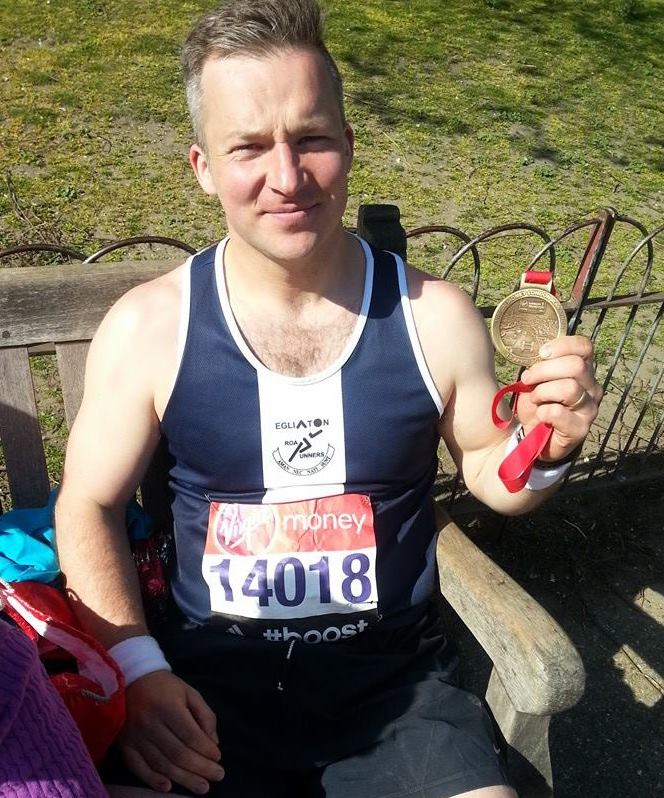
After all that he had given up, after all that he had been through – the act of being initially rejected for Northern Ireland U15s having played future international (29 caps) and Rangers star, Danny Griffin, ‘off the park’ in a trial game, rejected because ‘his name didn’t fit’, retrying shortly afterwards following ‘advice’ from Forest scouts and being then selected; sticking at it through all the lonely weekends and time away from friends; watching longingly as his club mates played for Derry minors in 1996, his final year – it was over.
I’m not going to tell a lie, I went AWOL for six months,” he says candidly and honestly. “I fell out of love with, well, everything. I was in a bad place,” he admits.
This was rock bottom and there was only one place left to go.
Derek McFeely had represented Faughanvale and Derry at senior level and understood young players. He was also manager of the Faughanvale senior team in 1998.
“If Derek McFeely had asked us to jump in the Foyle, we’d have jumped in the Foyle. He was like the pied piper and had also been pivotal in our youth development. With Paul Bradley and Kevin Bryson, they got young lads believing in themselves. They got me believing again,” O’Neill declares.
Now a coach and mentor in his own right, Shane regards the job as being ‘90% all about man management’. His philosophies are clearly, and understandably, a result of lessons learned and places visited, particularly post Nottingham Forest.
“I eventually got my head back in the GAA and played part-time soccer. We then won the intermediate championship in 1998 and 1999. We had a real good mix of younger and older players. It kick started my life again to be honest.”
*****
Faughanvale have always had talented footballers. In Shane O’Neill’s own time prior to, or at the start of, his professional soccer journey, the club contested two Féile and county u14 finals. On each occasion, Ballinderry Shamrocks stood in their path. O’Neill admits there was something missing and it was something which was still missing when the double intermediate winners looked to the new millennium:
“At 20 I was the oldest player in our half back line. We were going well but to be honest we just didn’t have enough players to keep it going, to take the next step up to senior level.
“Soccer had a bit to do with it. We had Tony Gray, Adrian Creane, myself and then Joe (Gray) all playing soccer as well. We had Noel Finn, Steven Mulvenna – real classy footballers but we didn’t have the commitment as a group. There’s no point in saying otherwise, that was the reason.
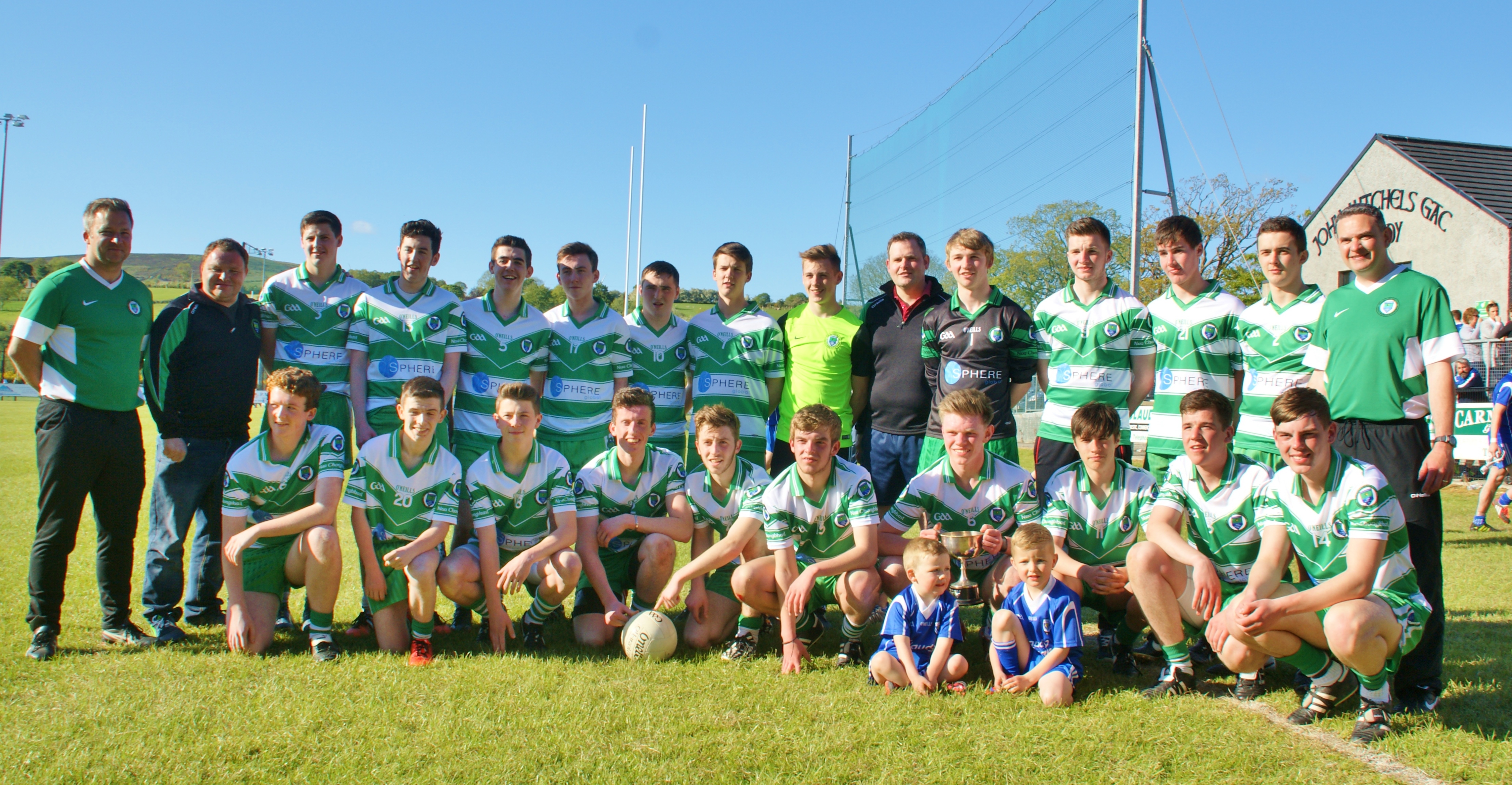
“My da took a team into the first division in the early 90’s, who perhaps didn’t have half the talent we had, and they finished fourth. But they had heart and they had the desire to do it,” he explains.
O’Neill has closely studied the current and recent kingpins of Derry football, Ballinderry and Slaughtneil.
“They just have it,” he says.
It’s not a raw talent and it’s not magic, according to the Faughanvale man – it’s more closely associated with belief in who they are and a total commitment to the cause.
By way of example, O’Neill vividly recalls an under-14 county final defeat at the hands of the Shamrocks:
“We counted it out one day. I think there was twelve of that Ballinderry team that beat us who went on to win All-Ireland medals,” he explains.
“Myself, as captain, and John McGee as manager went into their changing rooms afterwards. I remember John saying to them how he admired their togetherness and dedication. ‘How do you keep it going year after year’, he asked them? They had won so much.”
“The Ballinderry manager turned around on his own and said ‘John, I have nothing to do with it. If any of these lads miss training, the rest of them are down knocking their doors to find out why.
“That’s how it was; it’s just a way of life for them with no distractions.
“We trained as hard as any but there were always four or five whose commitment was border-line.”
*****
Saturday’s junior final will come and go and O’Neill regards it as important, of course. However, with his experiences and his knowledge of the game earned in the trenches, it’s the longer term which now counts.
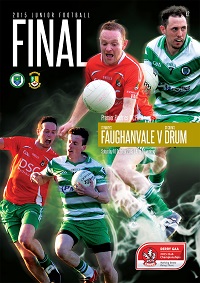
“Joe (Gray) has stripped it all back to basics now and has done a fantastic job. The lads are young, they’re fit and they’re hungry. It’s a mix of mostly younger lads with four or five older heads. Our average age in the semi-final was 21 I think. We’re back to where we need to be to start again,” maintains O’Neill.
The club have come full circle, have excellent administration in place, are eager to progress, and are seeking direction from past experiences.
“Paul Bradley and John McGee started our current youth programme,” explains O’Neill, now also a key part of the organisation. “Many of the boys who are playing now just came out of minors last year and there’s nine or ten of them playing on Saturday.
“Next year is about learning for them in Intermediate. I do believe that in three or four years’ time we will get out of Intermediate and into senior but we need to be patient along the way.
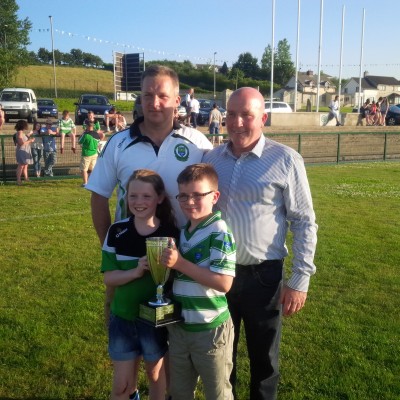
“Sometimes when lads get out of U16s, they’re growing into young men and they think they know everything and can’t be talked to. It can be a problem. The recent signs are good though. The younger lads are working well with Joe and are training in the gym twelve months of the year. They really need the guidance of the older boys to help them through the next few years though.”
He is reflective, knowledgeable and now clear-headed.
My father has a quote, remarks O’Neill; ‘when you stop learning, give up.’
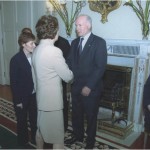

Fantastic read and an inspiration!! “When you stop learning.. Give up” – Class!!
[…] Read the full article here <<<<<<< […]
Well done Shane thanks for sharing your story.